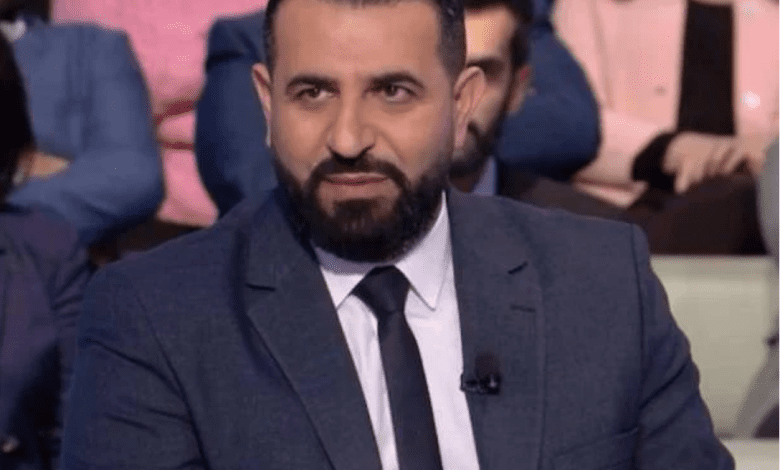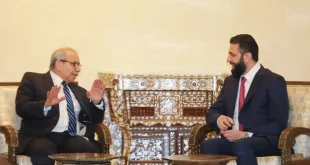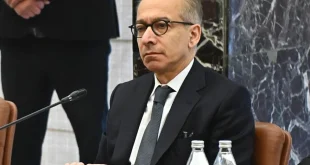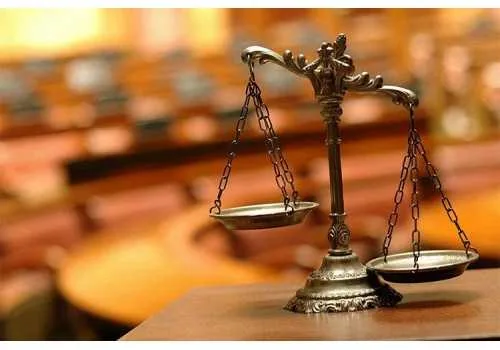مؤشرات إيجابية… وجباعي يُطمئن المودعين إلى هذا الأمر!
بدأت المؤشرات الاقتصادية والمالية بالتواتر مع انتخاب الرئيس وتشكيل الحكومة، لا سيما من جهات دولية مالية أبرزها صندوق النقد الدولي، مما أتاح فرصة لإعادة إحياء الآمال بإبرام الاتفاق الذي سبق أن تعثر، والذي بقي ينتظر الإصلاحات المالية من الحكومة.
اليوم، مع الحكومة الجديدة، ما المطلوب لإعادة لبنان إلى الحضن المالي العربي والدولي؟
يؤكد الباحث والخبير الاقتصادي محمود جباعي، في حديث إلى “ليبانون ديبايت”، أنه “مع انتخاب رئيس الجمهورية وتشكيل الحكومة، بدأت الأصداء الإيجابية من جهات مثل صندوق النقد الدولي، والبنك الدولي، ومجموعة العمل المالي الدولية، وتعتبر هذه الجهات، بما فيها صندوق النقد، أن المسار السياسي في البلد بدأ يظهر تحسنًا، وأصبح هناك إمكانية للتعاطي مع الدولة اللبنانية في عدة ملفات، خاصة بعد خطاب القسم، وتصريحات رئيس الحكومة المكلف، ووزير المال ياسين جابر، وبقية الوزراء الذين أكدوا أنهم سيعملون على الإصلاحات الضرورية، سواء كانت في التهرب الجمركي، وغيرها من الملفات الأخرى”.
ويشيد جباعي بـ”ما سمعه من وزير المال والوزراء الآخرين حول وجود إمكانية لتطبيق الإصلاحات في لبنان، فكل هذه المؤشرات أعطت إشارات إيجابية تفيد بأنه يمكن للبنان العودة لإبرام اتفاق مع صندوق النقد الدولي، الذي يعتبره الدكتور جباعي ضروريًا جدًا لإعادة الثقة المالية الدولية في البلاد، خاصة في موضوع “اللائحة الرمادية” والخطر من الدخول في “اللائحة السوداء” إذا لم نتدارك الأمر”.
كما يشير إلى أن “تقرير “فاتف” يوجه دائمًا سهامه نحو الدولة التي تتقاعس في الإصلاحات الضريبية، الإصلاحات القضائية، والتهرب الجمركي، وغير ذلك، وبالتالي، اليوم الدولة اللبنانية معنية بشكل كبير بالإسراع في تنفيذ هذه الإصلاحات”.
ويشدد على أن “جزءًا كبيرًا من هذه الإصلاحات يتصل بالملف الاقتصادي المالي والنقدي، وهي تصب في مصلحة البلد، مشيرًا إلى أن لبنان بحاجة أكثر من أي وقت مضى للعودة إلى المسار المالي والاقتصادي والنقدي الصحيح”.
ومع ذلك، ينبّه إلى أنه “يجب أن نرى الآن الأمور العملية على أرض الواقع، خاصة أن التجربة مع صندوق النقد في المرحلة الماضية وصلت إلى طريق شبه مسدود، حيث كان الوفد المفاوض يتبع مقاربات محددة، وكانت العلاقة مع صندوق النقد تغلب عليها نوع من الغموض في العديد من الملفات، لا سيما فيما يتعلق بالمودعين وإعادة هيكلة القطاع المصرفي”.
ويضيف في هذا السياق أنه “كانت هناك مؤشرات توحي بأن صندوق النقد يرغب في شطب الودائع أو في مطالبة الدولة اللبنانية بعدم الالتزام بدفع ديونها وخسائرها، ولكن هذا الكلام لم يكن دقيقًا، بعد المباحثات الجديدة مع صندوق النقد وتواصل لبنان معه، تبين أن الأمر ليس كما كان يُعتقد، بل إن الجهة اللبنانية هي المعنية بتحديد كيفية التعامل مع هذه الملفات”.
ويؤكد جباعي أنه “لا يمكن لأي جهة شطب أموال المودعين مهما كان الاتفاق مع أي طرف”، مشدّدًا أنه “على هذه القاعدة، يجب العودة إلى النقاش مع صندوق النقد بمعايير مختلفة، من خلال وفد لبناني جديد يتعامل مع صندوق النقد بما يخدم المصلحة اللبنانية العليا، مع الالتزام بتطبيق الإصلاحات التي يطلبها صندوق النقد، وهي أصلاً مصلحة لبنانية، ولكن يجب أن يتم ذلك دون المساس بأموال المودعين، يمكن إبرام اتفاق دون التأثير على هذه الأموال، بشرط أن تلتزم الدولة اللبنانية برؤية واضحة لحل أزمة المودعين وإعادة هيكلة القطاع المصرفي بشكل واقعي ومنطقي”.
ويوضح أن “هذا لا يتعارض مع ما يطلبه صندوق النقد، وهو ما يعتبره الأهم، وبالتالي، فإن الاتفاق مع صندوق النقد له إيجابيات كبيرة جدًا، خاصة أنه يُعتبر ممرًا لعبور لبنان إلى اتفاقات أخرى في المجتمع المالي الدولي والعربي، وهو أمر ضروري سيفتح آفاقًا إيجابية على البلاد في جميع المجالات الاقتصادية والمالية”.
أما اليوم، فيرى جباعي أن “الانتظار وتضييع الوقت لن يكون في مصلحة لبنان، بغض النظر عن العلاقة مع صندوق النقد أو غيره، إذ إن الرسائل الدولية والعربية واضحة، يجب على لبنان أن يطبق الإصلاحات السياسية والاقتصادية والمالية والنقدية لكي يعود إلى الحضن العربي والدولي، وهذا ما يجب أن يسعى إليه الاقتصاديون والماليون لمصلحة البلد”.
Positive Indicators… Jbeily Assures Depositors About Lebanon's Financial Recovery
Economic and financial indicators have started to improve notably with the election of the president and the formation of the Lebanese government, especially from key international financial bodies, most notably the International Monetary Fund (IMF). This has reignited hopes of finalizing an agreement that had previously stalled, awaiting necessary financial reforms from the government.
Lebanon's Return to the Arab and International Financial Community
In an exclusive interview with “Lebanon Debate,” economic researcher and expert Mahmoud Jbeily confirmed that “positive signals started to emerge from international bodies after the election of the president and the formation of the new government, including the IMF, World Bank, and the Financial Action Task Force (FATF).” These entities, including the IMF, view the political trajectory of the country as improving, creating an opportunity to engage with the Lebanese state on various issues, especially after the inaugural speech, and statements from the Prime Minister-designate and Finance Minister Yassine Jaber, and other ministers who committed to working on the necessary reforms.
Jbeily commended what he heard from the Finance Minister and other ministers regarding the possibility of implementing reforms in Lebanon. All these indicators provided positive signs suggesting Lebanon could reenter negotiations with the IMF. He emphasized that such an agreement is crucial to regain international financial trust in the country, especially concerning Lebanon's position on the FATF's grey list and the risk of being placed on the black list if the issue is not addressed.
Furthermore, Jbeily pointed out that the FATF report often targets states failing to implement reforms in areas such as tax evasion, judicial reforms, and customs evasion. Therefore, Lebanon is under significant pressure to quickly implement these reforms.
He stressed that a significant portion of these reforms is related to Lebanon's financial and monetary system and is in the country's best interest. “Lebanon needs, now more than ever, to return to a proper financial and economic path.”
However, Jbeily cautioned that the practical measures on the ground need to be seen, especially since previous negotiations with the IMF had reached an impasse, with the IMF delegation following specific approaches. The relationship with the IMF was somewhat ambiguous on many fronts, particularly regarding depositors and the restructuring of the banking sector.
He added that there were indicators suggesting that the IMF may have sought to write off depositors’ funds or pressured Lebanon not to honor its debts and losses. However, this was not accurate, and following new discussions and engagements with the IMF, it became clear that Lebanon itself must determine how to handle these matters.
Jbeily assured that “no one can erase depositor funds, no matter what agreement is made with any party,” and emphasized that Lebanon must return to discussions with the IMF with a new approach. A Lebanese delegation should negotiate in a way that serves Lebanon's highest interests while committing to the IMF's requested reforms, which are in Lebanon's best interest but must be implemented without harming depositor funds. It is possible to reach an agreement without negatively impacting these funds, provided Lebanon has a clear and practical vision to address the depositor crisis and restructure the banking sector logically.
He further clarified that this approach does not contradict the IMF’s requests, which he views as essential. Thus, an agreement with the IMF brings immense benefits, especially as it serves as a pathway for Lebanon to reach other agreements within the international and Arab financial communities. This is crucial and will open up positive prospects in all economic and financial fields.
Finally, Jbeily stated that waiting and wasting time will not serve Lebanon’s interests, regardless of its relationship with the IMF or other bodies. The international and Arab messages are clear: Lebanon must implement the necessary political, economic, financial, and monetary reforms to rejoin the international and Arab financial communities. This is what economists and financial professionals must focus on for the country’s benefit.
Translated by economyscopes team
المصدر: ليبانون ديبايت
 سكوبات عالمية إقتصادية – EconomyScopes إجعل موقعنا خيارك ومصدرك الأنسب للأخبار الإقتصادية المحلية والعربية والعالمية على أنواعها بالإضافة الى نشر مجموعة لا بأس بها من فرص العمل في لبنان والشرق الأوسط والعالم
سكوبات عالمية إقتصادية – EconomyScopes إجعل موقعنا خيارك ومصدرك الأنسب للأخبار الإقتصادية المحلية والعربية والعالمية على أنواعها بالإضافة الى نشر مجموعة لا بأس بها من فرص العمل في لبنان والشرق الأوسط والعالم




